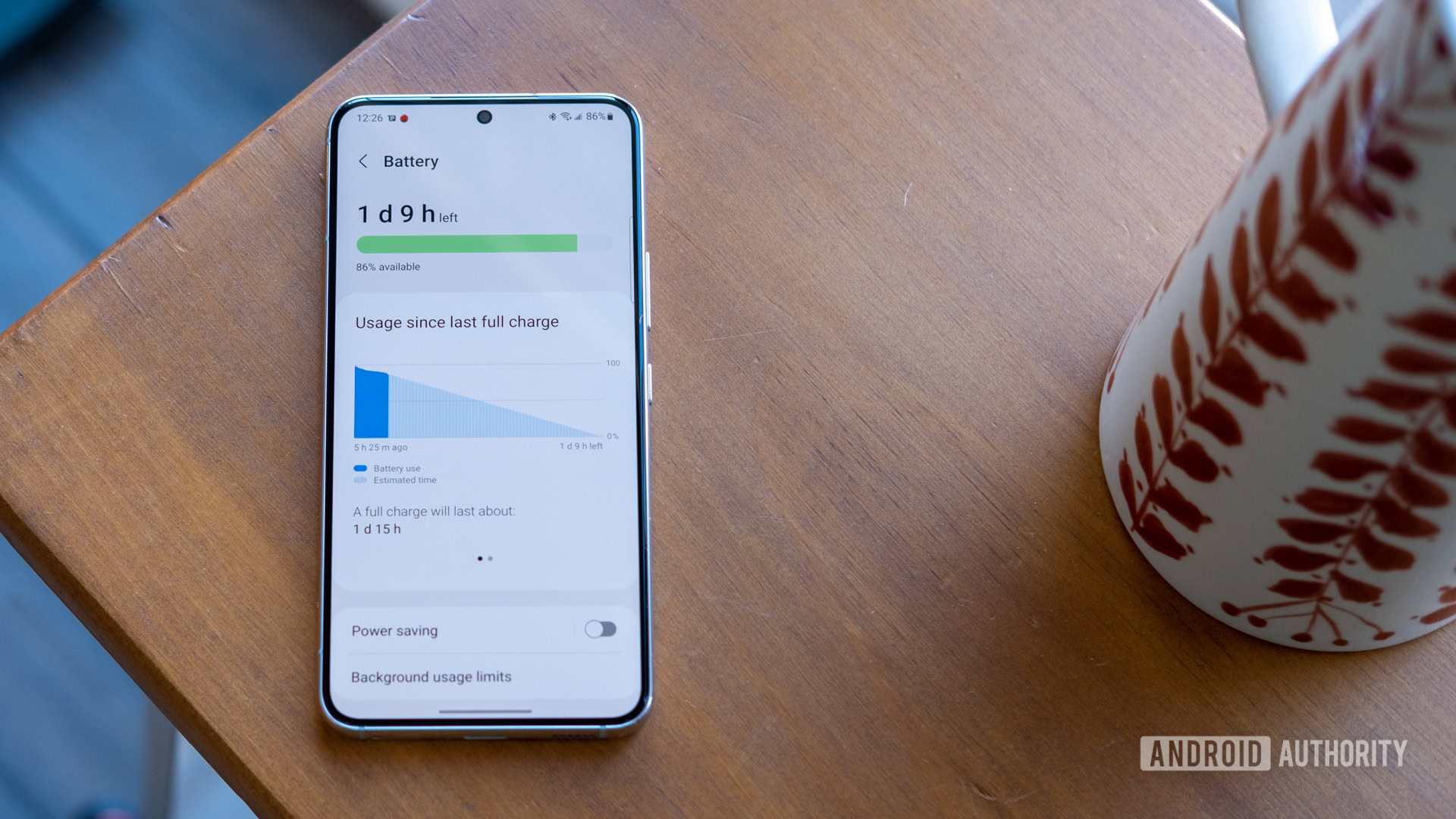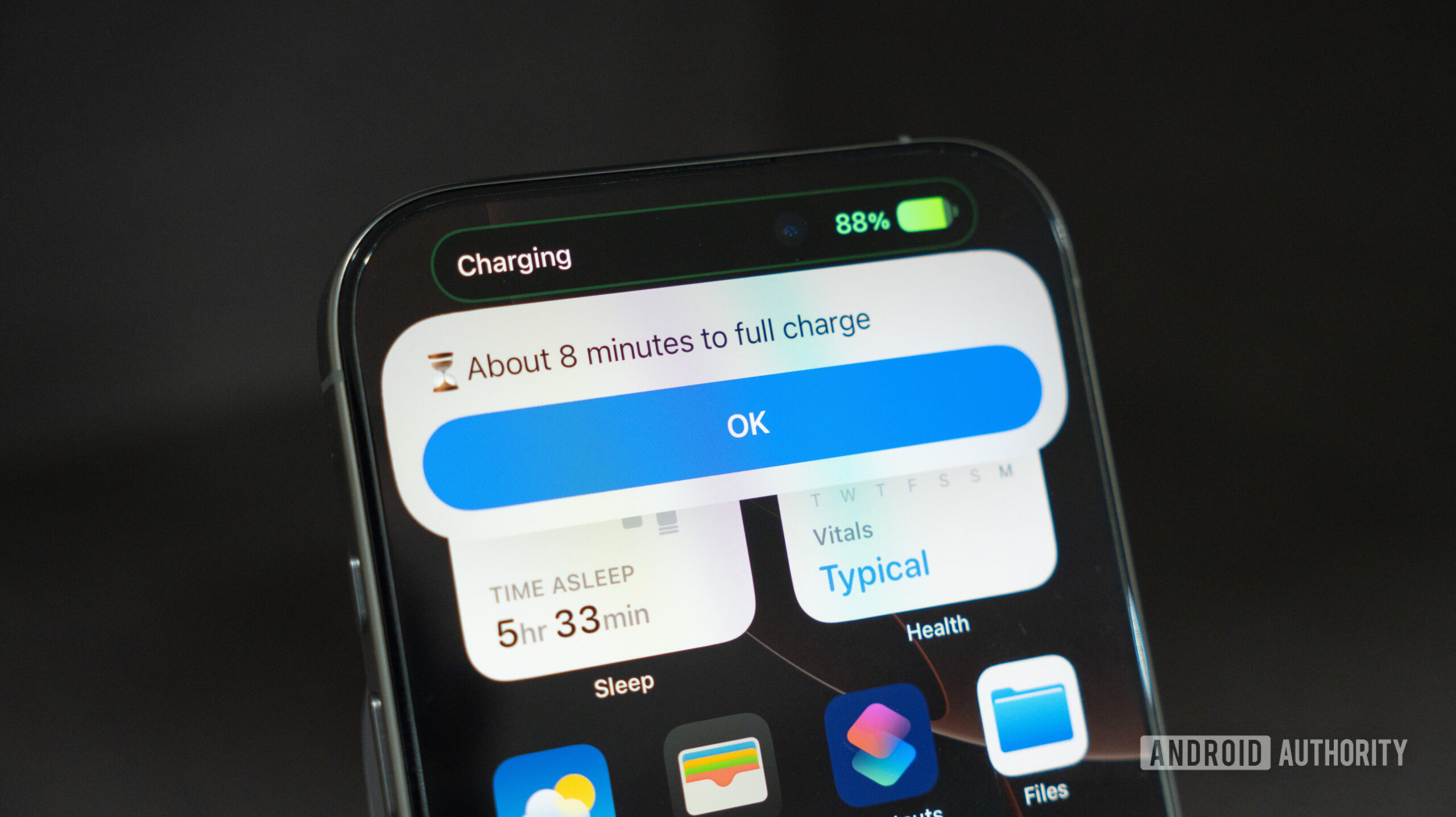Affiliate links on Android Authority may earn us a commission. Learn more.
Should I leave my phone plugged in overnight?
Published onApril 27, 2025

From performance to features, modern smartphones exceed our expectations in nearly every aspect and can easily last half a decade or longer. However, long smartphone battery life and health are two concerns that require some attention on your part to ensure the device can survive through the years. You may have heard claims that charging your phone for long periods could lead to overcharging and wear out the battery sooner than expected. But are these concerns really valid or are they just another battery myth? Just how much damage are you doing to your smartphone by leaving it plugged in overnight? Let’s break it down.
Is it bad to charge your smartphone overnight?
No, it’s not unsafe to charge your phone overnight as modern electronics have plenty of failsafes. However, we absolutely recommend using features like Adaptive Battery that delay or slow down overnight charging to prevent long-term battery degradation. To understand why, let’s start with the basics of how a smartphone’s battery works.
When you use your smartphone and discharge its lithium-ion battery, positively charged ions move from the anode to the cathode. Depleting the battery essentially means that you’ve transferred (or spent) all ions. Charging a battery forces a similar transfer of ions, but in the reverse direction. However, your smartphone’s battery doesn’t pull current directly from a wall adapter to accomplish this.
Most modern electronics — and certainly all smartphones — contain power management integrated circuits (PMICs) that sit between the charging port and battery. These miniature electronic devices essentially control the rate and flow of current to the battery. You see, the amount of power your phone draws reduces over time in order to reduce strain (and thus, wear) on the battery. Moreover, once the battery reaches 100% charge, the phone’s circuitry will intelligently stop drawing power from the wall adapter altogether.
That’s right — if you keep your phone plugged in at 100% charge, it simply won’t charge anymore. Instead, it will sip power from the battery until it drops to 99% (or thereabouts). The above cycle then simply repeats itself until you unplug the device. Put simply, you can safely charge your devices overnight without worrying about damaging their internals.
Modern electronics automatically stop pulling current once their batteries reach 100% charge. However, charging your smartphone to full each time isn't ideal for battery longevity.
While you’ll likely never overcharge your smartphone’s battery, leaving it plugged in overnight does have a few drawbacks you should be aware of. The electronics industry’s consensus is that lithium-ion batteries survive the longest when kept between 20 and 80% charge. Of course, this is a rather narrow range — you’ll only get around half of your device’s already-limited battery life if you strictly stick to this guideline. However, you can simply try to prevent it from reaching either extreme as much as possible. In other words, a good charging habit is top-up your smartphone before it can reach 0% and don’t charge all the way during the day.
Having said that, manufacturers already sneakily discourage you from charging your device’s battery to true 100%. Our testing has revealed that many smartphones report a 100% reading much before they stop pulling power from the wall. Some Android skins like One UI and Pixel UI also offer a maximum charge limit (like 80%) to prolong the battery’s lifespan.
How to charge your device without damaging its battery

A major factor that is known to shorten the lifespan of lithium-ion batteries is heat. To that end, ensure that your smartphone is placed in a cool and ventilated area while it’s charging. Keeping it sandwiched between two pillows, for example, could lead to overheating, a slower charge rate, and worse battery health. Wireless charging, while convenient, produces plenty of heat too, so use it sparingly if you want maximum battery longevity.
Fast charging your smartphone generally increases heat output as well. To that end, it might be worth downgrading your bedside adapter to a slower one that charges at 5 or 10 watts. That’s still plenty for you to wake up to a fully-charged smartphone in the morning. If you own a recent Google Pixel smartphone, your phone will automatically charge slower than the maximum speed at night thanks to the Adaptive Charging feature. However, this may only work if you have an alarm set between 3 AM and 10 AM.
Heat accelerates battery wear so consider turning off fast charging overnight or use a slower adapter.
All in all, though, your device already has many built-in safeguards to prolong its life. Samsung, for one, claims that it designs its smartphones to retain as much as 95% of its total battery capacity after two years of use. This is likely why the company is one of the most conservative in terms of faster charging tech.
Some smartphones, including the iPhone and recent Pixel phones, allow you to check your device’s current battery health within the Settings app. Even if your smartphone’s battery health degrades, however, don’t forget that replacement options exist too. You can typically get your smartphone’s aging battery replaced for anywhere between $40 and $100 all-inclusive, depending on the manufacturer. While that’s a decent sum, it’s arguably a lot cheaper than splurging on a brand-new smartphone. And, of course, it stops you from worrying about plugging in overnight or whenever suits you best.
FAQs
If you keep charging your phone past the 100% mark, it will automatically stop accepting power until the battery drops to 99%. The process keeps cycling as long as you leave your phone plugged in and ensures no overcharging takes place.
Yes, modern smartphones and batteries can withstand overnight wireless charging. However, it’s generally recommended to use slower charging at night to preserve battery health.
A smartphone battery will last the longest if you manage to keep its battery charge between 20 and 80% as much as possible.